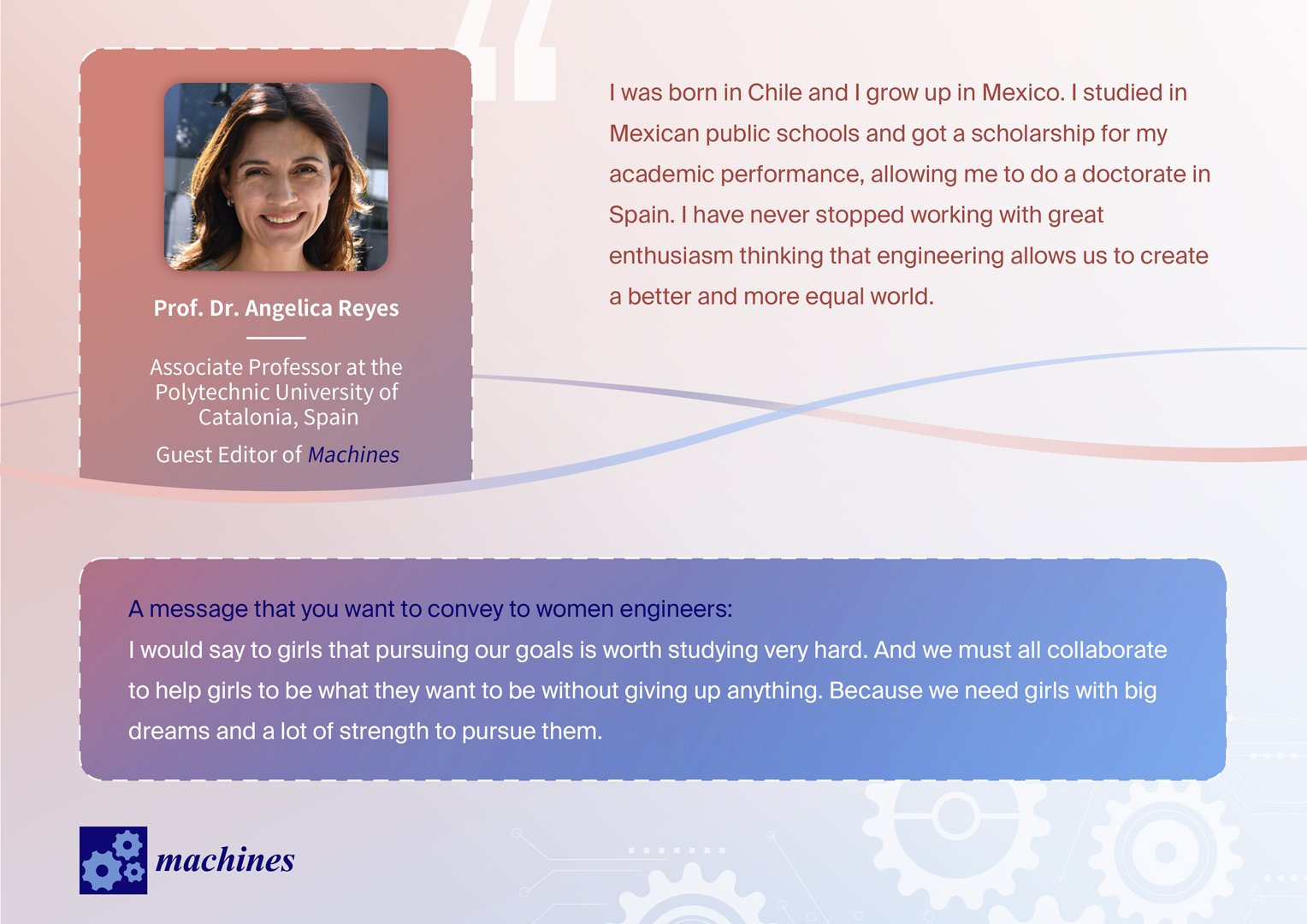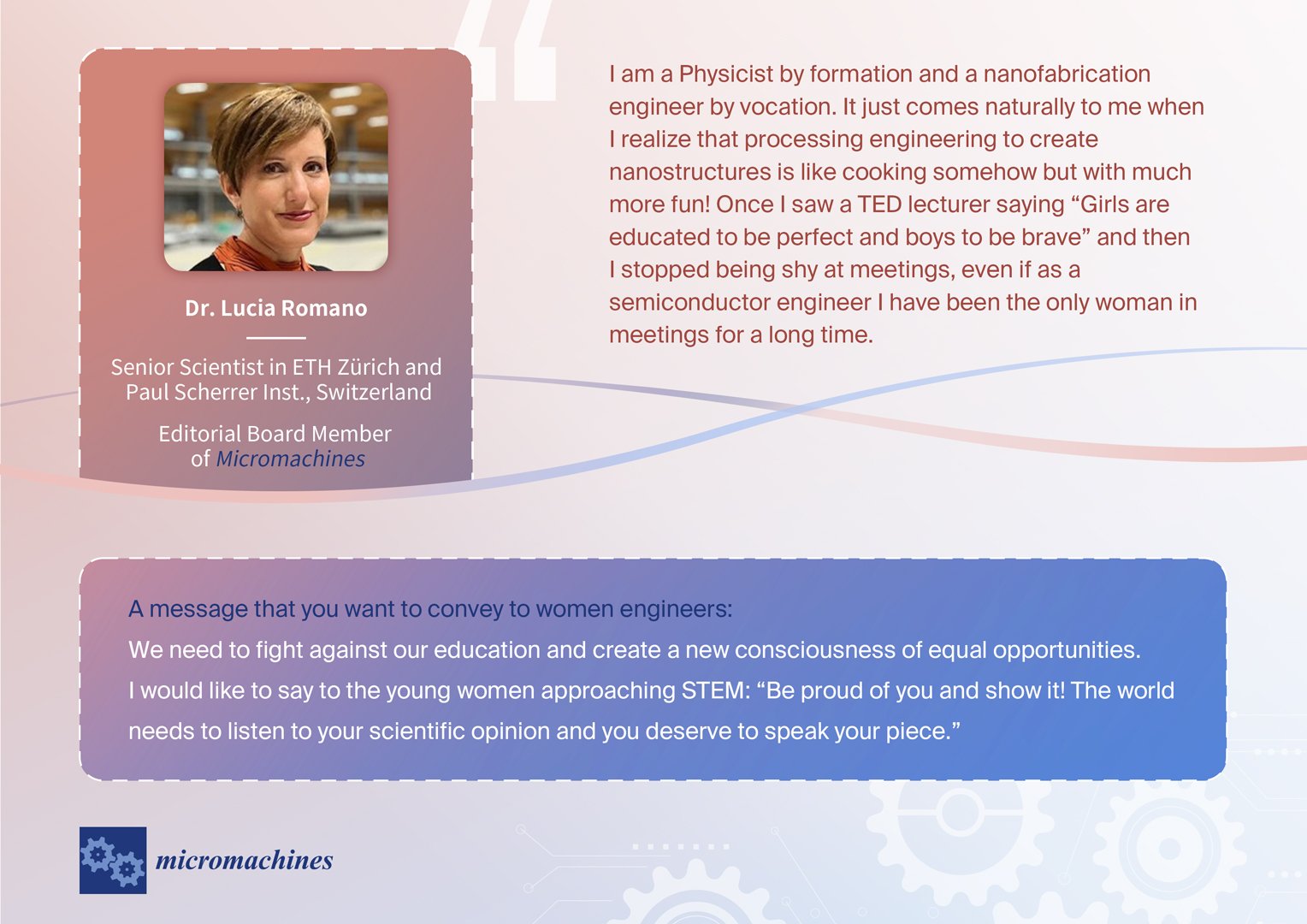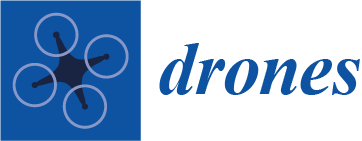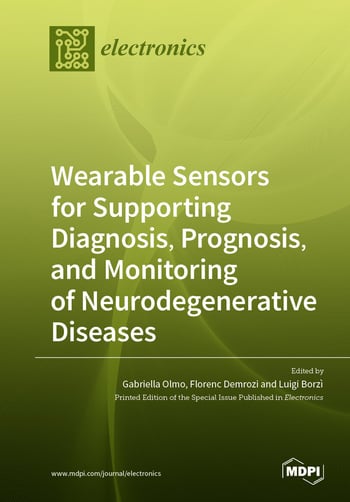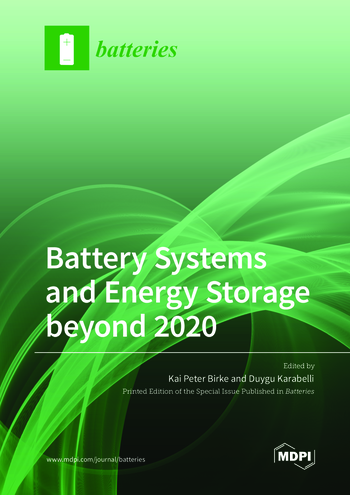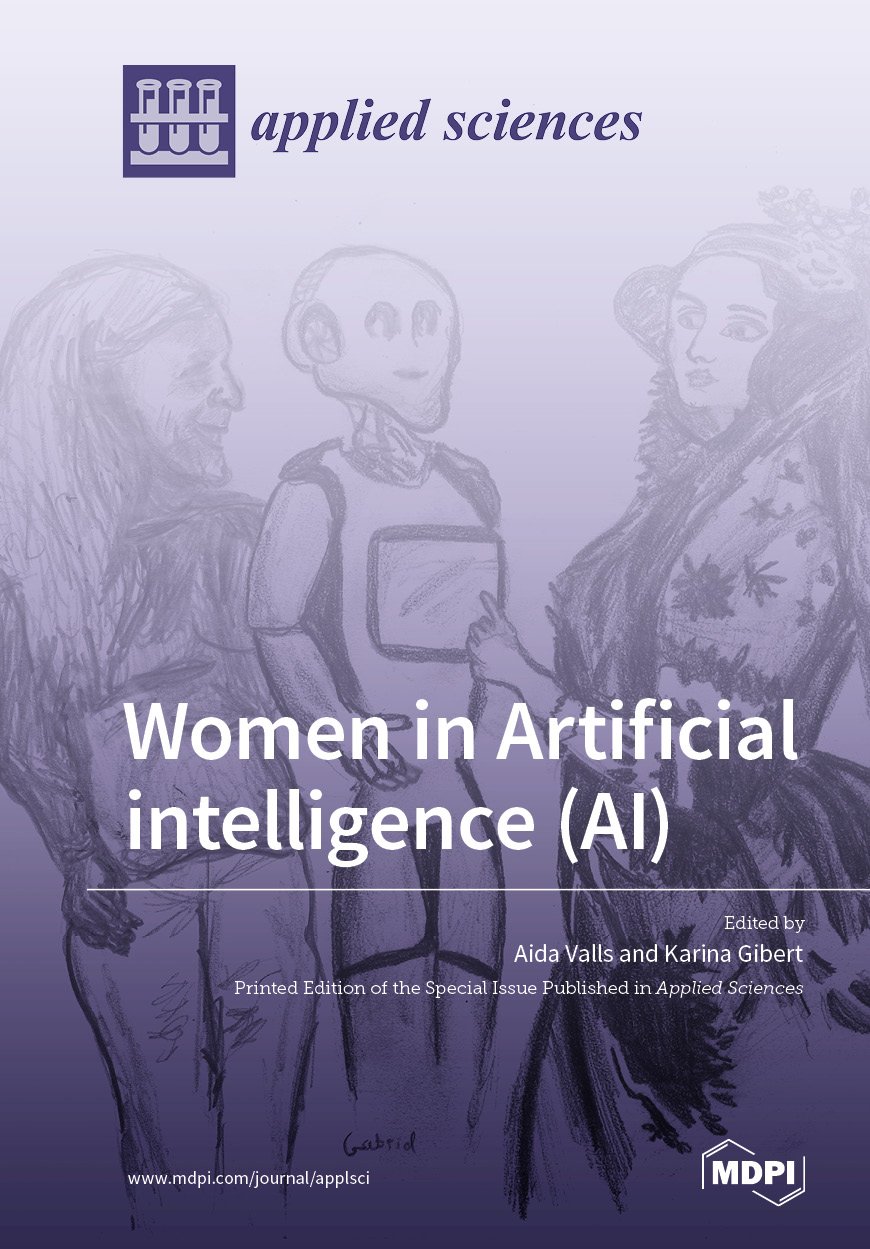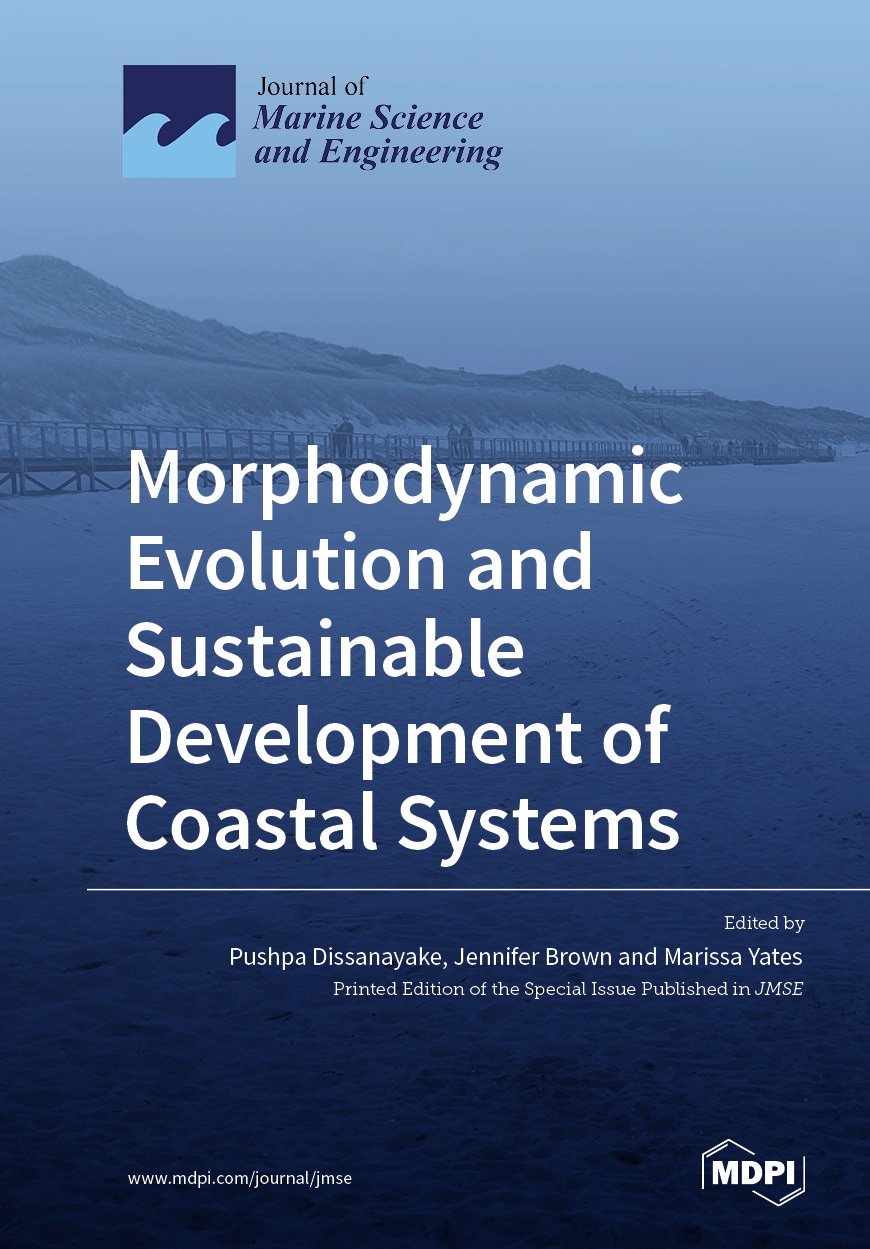
Journal Menu
► ▼ Journal Menu-
- Machines Home
- Aims & Scope
- Editorial Board
- Reviewer Board
- Topical Advisory Panel
- Instructions for Authors
- Special Issues
- Topics
- Sections & Collections
- Article Processing Charge
- Indexing & Archiving
- Editor’s Choice Articles
- Most Cited & Viewed
- Journal Statistics
- Journal History
- Journal Awards
- Society Collaborations
- Conferences
- Editorial Office
Journal Browser
► ▼ Journal BrowserNeed Help?
Announcements
16 August 2023
MDPI’s Best Paper Awards in Engineering—Winners in 2022 Announced

The purpose of our Best Paper Awards is to promote and recognize the most impactful contributions published within MDPI journals.
The editors of each journal carefully selected reviews and research papers through a rigorous judging process based on criteria such as scientific merit, overall impact, and the quality of presentation of the papers published in the journal.
We are honored to present the winners announced for the year 2022 in the engineering category, who were selected from extensive competition, and congratulate the authors for their outstanding scientific publications. MDPI will continue to provide support and recognition to the academic community.
- “Two-Way and Multiple-Way Shape Memory Polymers for Soft Robotics: An Overview”
by Giulia Scalet
Actuators 2020, 9(1), 10; https://doi.org/10.3390/act9010010
- “Low-Cost, Open-Source Mechanical Ventilator with Pulmonary Monitoring for COVID-19 Patients”
by Leonardo Acho, Alessandro N. Vargas and Gisela Pujol-Vázquez
Actuators 2020, 9(3), 84; https://doi.org/10.3390/act9030084
- “Styrenic-Rubber Dielectric Elastomer Actuator with Inherent Stiffness Compensation”
by Giacomo Moretti, Luca Sarina, Lorenzo Agostini, Rocco Vertechy, Giovanni Berselli and Marco Fontana
Actuators 2020, 9(2), 44; https://doi.org/10.3390/act9020044
- “Chromium(III) Removal from Wastewater by Chitosan Flakes”
by Loris Pietrelli, Iolanda Francolini, Antonella Piozzi, Maria Sighicelli, Ilaria Silvestro and Marco Vocciante
Appl. Sci. 2020, 10(6), 1925; https://doi.org/10.3390/app10061925
- “Unravelling the Environmental Application of Biochar as Low-Cost Biosorbent: A Review”
by Antía Fdez-Sanromán, Marta Pazos, Emilio Rosales and María Angeles Sanromán
Appl. Sci. 2020, 10(21), 7810; https://doi.org/10.3390/app10217810
- “Observation of Potential Contaminants in Processed Biomass Using Fourier Transform Infrared Spectroscopy”
by Jingshun Zhuang, Mi Li, Yunqiao Pu, Arthur Jonas Ragauskas and Chang Geun Yoo
Appl. Sci. 2020, 10(12), 4345; https://doi.org/10.3390/app10124345
- “Drug-Resistant Tuberculosis 2020: Where We Stand”
by Angelo Iacobino, Lanfranco Fattorini and Federico Giannoni
Appl. Sci. 2020, 10(6), 2153; https://doi.org/10.3390/app10062153
- “Real-Time Remote Maintenance Support Based on Augmented Reality (AR)”
by Dimitris Mourtzis, Vasileios Siatras and John Angelopoulos
Appl. Sci. 2020, 10(5), 1855; https://doi.org/10.3390/app10051855
- “Dielectric Elastomer Actuator for Soft Robotics Applications and Challenges”
by Jung-Hwan Youn, Seung Mo Jeong, Geonwoo Hwang, Hyunwoo Kim, Kyujin Hyeon, Jihwan Park and Ki-Uk Kyung
Appl. Sci. 2020, 10(2), 640; https://doi.org/10.3390/app10020640
- “Low-Cost Biochar Adsorbents for Water Purification Including Microplastics Removal”
by Virpi Siipola, Stephan Pflugmacher, Henrik Romar, Laura Wendling and Pertti Koukkari
Appl. Sci. 2020, 10(3), 788; https://doi.org/10.3390/app10030788
- “Microstructure and Mechanical Properties of AISI 316L Produced by Directed Energy Deposition-Based Additive Manufacturing: A Review”
by Abdollah Saboori, Alberta Aversa, Giulio Marchese, Sara Biamino, Mariangela Lombardi and Paolo Fino
Appl. Sci. 2020, 10(9), 3310; https://doi.org/10.3390/app10093310
- “Humans-as-a-Sensor for Buildings—Intensive Longitudinal Indoor Comfort Models”
by Prageeth Jayathissa, Matias Quintana, Mahmoud Abdelrahman and Clayton Miller
Buildings 2020, 10(10), 174; https://doi.org/10.3390/buildings10100174
- “Circular Building Design: An Analysis of Barriers and Drivers for a Circular Building Sector”
by Jouri Kanters
Buildings 2020, 10(4), 77; https://doi.org/10.3390/buildings10040077
- “Building Information Modelling (BIM) to Enhance Occupational Safety in Construction Activities: Research Trends Emerging from One Decade of Studies”
by Mario Fargnoli and Mara Lombardi
Buildings 2020, 10(6), 98; https://doi.org/10.3390/buildings10060098
- “A SWOT Analysis of the Use of BIM Technology in the Polish Construction Industry”
by Krzysztof Zima, Edyta Plebankiewicz and Damian Wieczorek
Buildings 2020, 10(1), 16; https://doi.org/10.3390/buildings10010016
- “Durability and Climate Change—Implications for Service Life Prediction and the Maintainability of Buildings”
by Michael A. Lacasse, Abhishek Gaur and Travis V. Moore
Buildings 2020, 10(3), 53; https://doi.org/10.3390/buildings10030053
- “Worker 4.0: The Future of Sensored Construction Sites”
by Diego Calvetti, Pedro Mêda, Miguel Chichorro Gonçalves and Hipólito Sousa
Buildings 2020, 10(10), 169; https://doi.org/10.3390/buildings10100169
- “A Review of Topology Optimisation for Fluid-Based Problems”
by Joe Alexandersen and Casper Schousboe Andreasen
Fluids 2020, 5(1), 29; https://doi.org/10.3390/fluids5010029
- “On the Deterministic Prediction of Water Waves”
by Marco Klein, Matthias Dudek, Günther F. Clauss, Sören Ehlers, Jasper Behrendt, Norbert Hoffman and Miguel Onorato
Fluids 2020, 5(1), 9; https://doi.org/10.3390/fluids5010009
- “On the Effect of Block Roughness in Ogee Spillways with Flip Buckets”
by Rasoul Daneshfaraz, Amir Ghaderi, Aliakbar Akhtari, Silvia Di Francesco
Fluids 2020, 5(4), 182; https://doi.org/10.3390/fluids5040182
- “Marine Application of Fiber Reinforced Composites: A Review”
by Felice Rubino, Antonio Nisticò, Fausto Tucci and Pierpaolo Carlone
J. Mar. Sci. Eng. 2020, 8(1), 26; https://doi.org/10.3390/jmse8010026
- “Numerical Simulation of Large Wave Heights from Super Typhoon Nepartak (2016) in the Eastern Waters of Taiwan”
by Shih-Chun Hsiao, Hongey Chen, Han-Lun Wu, Wei-Bo Chen, Chih-Hsin Chang, Wen-Dar Guo, Yung-Ming Chen and Lee-Yaw Lin
J. Mar. Sci. Eng. 2020, 8(3), 217; https://doi.org/10.3390/jmse8030217
- “Development of Deterministic Artificial Intelligence for Unmanned Underwater Vehicles (UUV)”
by Timothy Sands
J. Mar. Sci. Eng. 2020, 8(8), 578; https://doi.org/10.3390/jmse8080578
- “Effective Application of Solid Lubricants in Spacecraft Mechanisms”
by Jeffrey R. Lince
Lubricants 2020, 8(7), 74; https://doi.org/10.3390/lubricants8070074
- “High-Rate Laser Surface Texturing for Advanced Tribological Functionality”
by Jörg Schille, Lutz Schneider, Stefan Mauersberger, Sylvia Szokup, Sören Höhn, Johannes Pötschke, Friedemann Reiß, Erhard Leidich and Udo Löschner
Lubricants 2020, 8(3), 33; https://doi.org/10.3390/lubricants8030033
- “Size Sorting of Exosomes by Tuning the Thicknesses of the Electric Double Layers on a Micro-Nanofluidic Device”
by Satoko Fujiwara, Kyojiro Morikawa, Tatsuro Endo, Hideaki Hisamoto and Kenji Sueyoshi
Micromachines 2020, 11(5), 458; https://doi.org/10.3390/mi11050458
- “Additive Manufacturing of Sub-Micron to Sub-mm Metal Structures with Hollow AFM Cantilevers”
by Giorgio Ercolano, Cathelijn van Nisselroy, Thibaut Merle, János Vörös, Dmitry Momotenko, Wabe W. Koelmans and Tomaso Zambelli
Micromachines 2020, 11(1), 6; https://doi.org/10.3390/mi11010006
- “A Robotic Biopsy Endoscope with Magnetic 5-DOF Locomotion and a Retractable Biopsy Punch”
by Manh Cuong Hoang, Viet Ha Le, Kim Tien Nguyen, Van Du Nguyen, Jayoung Kim, Eunpyo Choi, Seungmin Bang, Byungjeon Kang, Jong-Oh Park and Chang-Sei Kim
Micromachines 2020, 11(1), 98; https://doi.org/10.3390/mi11010098
- “Development of Fully Flexible Tactile Pressure Sensor with Bilayer Interlaced Bumps for Robotic Grasping Applications”
by Lingfeng Zhu, Yancheng Wang, Deqing Mei and Chengpeng Jiang
Micromachines 2020, 11(8), 770; https://doi.org/10.3390/mi11080770
- “A mm-Sized Free-Floating Wireless Implantable Opto-Electro Stimulation Device”
by Yaoyao Jia, Yan Gong, Arthur Weber, Wen Li and Maysam Ghovanloo
Micromachines 2020, 11(6), 621; https://doi.org/10.3390/mi11060621
- “Advanced Bioethanol Production: From Novel Raw Materials to Integrated Biorefineries”
by Aleta Duque, Cristina Álvarez, Pablo Doménech, Paloma Manzanares and Antonio D. Moreno
Processes 2021, 9(2), 206; https://doi.org/10.3390/pr9020206
- “An Overview on Fault Diagnosis, Prognosis and Resilient Control for Wind Turbine Systems”
by Zhiwei Gao and Xiaoxu Liu
Processes 2021, 9(2), 300; https://doi.org/10.3390/pr9020300
- “Role of Microalgae in the Recovery of Nutrients from Pig Manure”
by Ana Sánchez-Zurano, Martina Ciardi, Tomás Lafarga, José María Fernández-Sevilla, Ruperto Bermejo and Emilio Molina-Grima
Processes 2021, 9(2), 203; https://doi.org/10.3390/pr9020203
- “Applying Lean Six Sigma Methodology to a Pharmaceutical Manufacturing Facility: A Case Study”
by Brian Byrne, Olivia McDermott and John Noonan
Processes 2021, 9(3), 550; https://doi.org/10.3390/pr9030550
- “YOLO-Tomato: A Robust Algorithm for Tomato Detection Based on YOLOv3”
by Guoxu Liu, Joseph Christian Nouaze, Philippe Lyonel Touko Mbouembe and Jae Ho Kim
Sensors 2020, 20(7), 2145; https://doi.org/10.3390/s20072145
- “Piezoelectric Energy Harvesting Solutions: A Review”
by Corina Covaci and Aurel Gontean
Sensors 2020, 20(12), 3512; https://doi.org/10.3390/s20123512
- “Applications of Graphene Quantum Dots in Biomedical Sensors”
by Bhargav D. Mansuriya and Zeynep Altintas
Sensors 2020, 20(4), 1072; https://doi.org/10.3390/s20041072
WEVJ:
- “Beyond the State of the Art of Electric Vehicles: A Fact-Based Paper of the Current and Prospective Electric Vehicle Technologies”
by Joeri Van Mierlo, Maitane Berecibar, Mohamed El Baghdadi, Cedric De Cauwer, Maarten Messagie, Thierry Coosemans, Valéry Ann Jacobs and Omar Hegazy
World Electr. Veh. J. 2021, 12(1), 20; https://doi.org/10.3390/wevj12010020
- “An Overview of Parameter and Cost for Battery Electric Vehicles”
by Adrian König, Lorenzo Nicoletti, Daniel Schröder, Sebastian Wolff, Adam Waclaw and Markus Lienkamp
World Electr. Veh. J. 2021, 12(1), 21; https://doi.org/10.3390/wevj12010021
About MDPI Awards:
In order to reward the academic community, especially young researchers and enhance communication among scientists, MDPI journals regularly offer various awards to researchers in specific fields. These awards, serving as a source of inspiration and recognition, help raise the influence of talented individuals who have been credited with outstanding achievements and are making a significant contribution to the advancement of their fields.
To explore more MDPI awards, please click here.
27 July 2023
MDPI Insights: The CEO's Letter #2 - Open Peer-Review and IJERPH

Welcome to the MDPI Insights: The CEO's Letter.
In these monthly letters, I will showcase two key aspects of our work at MDPI: our commitment to empowering researchers and our determination to facilitating open scientific exchange.
Opening Thoughts

Open Peer Review Reports
Continuing the topic of openness from my inaugural monthly CEO letter, in these Opening Thoughts, I highlight the growth and importance of open peer-review reports at MDPI. Open peer reports align with the principles of open science, making the publishing process more transparent and facilitating rigorous peer review.
MDPI journals operate an open peer-review option by default, allowing authors to publish review reports and author responses (often referred to as open reports) together with the published paper. Publishing the reviewer reports and author responses together with the article provides greater transparency and trust for readers, as this allows them to track the editorial decision-making process. Open peer-review also encourages reviewers and editors to provide high-quality comments, as these will be made public if the article is accepted for publication.
Start and Growth of Open Peer Review at MDPI
The MDPI journal Life was a pioneer in offering this opportunity to its authors in 2014. The first MDPI article with peer-review reports openly published was a review by the Nobel Laureate Werner Arber, in which the review reports were published as supplementary material. By 2018, open peer-review was available across all MDPI journals. As such, MDPI authors have embraced the open peer-review model, providing a steady increase in the number of MDPI articles. As of 2023, approximately one-third (34.0%) of MDPI articles were published with open review reports.
As at July 2023, the percentage of MDPI articles published with open peer review has increased to 36.2% of the total papers published in 2023 so far, indicating ongoing growth in adoption.
Open peer review continues to play a critical role in the assessment of the peer-review process in Life. For further insights, please see the recent editorial by Dr. Pabulo Henrique Rampelotto, the former Editor-in-Chief of Life, who spearheaded the implementation of the open peer-review process.
Benefits of Open Peer Review
The benefits of open peer review include increased transparency, trust and constructive feedback. To promote open communication further and increase the robustness of the peer-review process, we encourage reviewers to sign their reports so that their name appears on the review report (this process is referred to as open identity). The default option is for reviewers to remain anonymous; however, by signing the reports, reviewers receive direct credit for their contribution to the peer-review process and show their commitment towards open science.
As the leading open access publisher, MDPI remains committed to promoting open peer-review and encourages authors to choose this approach. Our goal is to provide a rigorous and transparent peer-review process that benefits the scientific community, and we believe that open peer-review is a vital step in fostering openness and collaboration in scientific communication.
Impactful Research

MDPI Papers Cited in the News – IJERPH edition
Every month, our corporate marketing team compiles data from Altmetrics to create a list of MDPI papers that have been cited in the news. This list continues to grow as renowned news outlets regularly reference research published by MDPI in their articles.
During 2022, a total of 111,965 MDPI research papers were mentioned in prominent news outlets such as National Geographic, The Washington Post, Forbes, The Guardian, the BBC, CNN, Time, and Harvard Business Review.
Highly Cited Journal Publications
IJERPH, known for publishing impactful research, received the most news mentions among all MDPI journals in 2022, based on Altmetrics data:
- International Journal of Environmental Research and Public Health: 3509 mentions
- Nutrients: 2698 mentions
- International Journal of Molecular Sciences: 1701 mentions
- Journal of Clinical Medicine: 1131 mentions
- Viruses: 1111 mentions
These numbers show the recognition and impact of the articles published in IJERPH. For a more detailed view of the journal’s most cited and viewed papers, you can visit here. In total, IJERPH has garnered over 28,000 mentions in prominent news outlets, and as at July 2023, an impressive count of over 17,000 papers cited 10 times or more. These figures highlight the impactful contribution of IJERPH publications to the scientific community.
Example of Recent Mentions
During May and June 2023, a noteworthy selection of articles from IJERPH was cited in news articles, including:
The Washington Post: “Bringing nature inside can improve your health. Here’s how to do it.”
IJERPH paper: “Physiological Benefits of Viewing Nature: A Systematic Review of Indoor Experiments”
Harvard Business Review: “How to Take Better Breaks at Work, According to Research”
IJERPH paper: “Canine-Assisted Therapy Improves Well-Being in Nurses”
National Geographic: “Lyme disease is spreading fast—but a vaccine may be on the way”
IJERPH paper: “Range Expansion of Tick Disease Vectors in North America: Implications for Spread of Tick-Borne Disease”
Inside MDPI

MDPI Develops an Artificial Intelligence Tool to Enhance the Peer-Review Process
At MDPI, we believe that rigorous peer-review is the corner-stone of high-quality academic publishing. We are grateful to the scholars who generously dedicate their time to peer-review articles submitted to MDPI journals. Their contributions are invaluable to the advancement of science.
Peer-review is a critical part of the publication process, ensuring that MDPI upholds the highest quality standards for the papers we publish. Every manuscript submitted to our journals undergoes a comprehensive peer-review process conducted by subject-matter experts.
To further enhance our peer-review process, our Data Analytics team has developed an Artificial Intelligence (AI) tool designed to support the selection of reviewers. This proprietary tool utilizes Natural Language Processing (NLP), a specially designed AI language model, to extract information from the title and abstract of submitted papers. It then searches our database for similar manuscripts and suggests potential reviewers based on this analysis. Integrated with MDPI's submission system (SuSy), the AI tool cross-references the suggested candidates with our reviewer database to verify their invitation status and availability.
The goal of this tool is to provide better targeted peer-review invitations, reducing the number of emails sent for each paper and increasing the efficiency of our editorial staff.
In the near future, our Data Analytics team plans to deploy similar AI projects to improve other critical aspects of our services, offering an enhanced experience to our authors and readers.
Click here to learn about MDPI’s review process, including procedures, responsibilities, and benefits.
Read more:
Coming Together for Science
The Future of IJERPH

On 5 July 2023, Prof. Dr. Paul B. Tchounwou, the founding Editor-in-Chief of IJERPH, along with five Section Editors in Chief (Prof. Dr. Germán Vicente-Rodríguez, Prof. Dr. Karl Goodkin, Prof. Dr. William A. Toscano, Prof. Dr. Jimmy T. Efird, and Prof. Dr. William Douglas Evans), gathered in Basel to discuss the future of the journal. The meeting provided an opportunity to address the recent decision by The Web of Science to delist IJERPH due to the journal failing the Content Relevance criterion, and propose best strategies that will ensure high scientific rigor as well as a clear scope and aim of IJERPH, going forward.
While the delisting is disappointing for IJERPH, as well as for our authors, academic editors, and the entire scientific community supporting our journal, we see it as an opportunity to reflect and prepare for the future direction of the journal.
Since its launch in 2004, IJERPH’s vision and mission have evolved to be more complete and comprehensive in engaging scientific communities. In light of this, we will refresh the journal’s aims and scope, ensuring they align with the organic expansion of IJERPH. Additionally, we will restructure the journal sections into broader categories, encouraging collaborative research and transdisciplinary approaches for authors. This is designed to foster collaboration and knowledge exchange among diverse fields, contributing to a holistic understanding of health promotion and disease prevention. We are confident that these next steps will enhance the scientific strength and societal impact of our journal.

Journal Achievements
In addition to the productive discussions, we took the time to celebrate some of the remarkable achievements of IJERPH, which I highlight below:
- Founded by Prof. Dr. Paul B. Tchounwou in 2004
- Indexed in PubMed in 2008
- Received its first Impact Factor in 2012
- Published its 5000th paper in 2017
- Over 60,000 papers published as at June 30, 2023
- 131,628,173 paper views in 2018–2022
- Over 28,000 mentions in prominent news outlets
- 17,000 papers cited 10 times or more as at June 30, 2023
- No.1 journal in the 2022 Google Scholar Metrics in the category of Public Health
- Awarded several editions of Young Investigator Awards, Travel Awards, and Outstanding Reviewer Awards since 2018.
These achievements showcase the journal’s significant contributions to the field and its impact on global health. We are proud of the exceptional work accomplished by the IJERPH team and look forward to building upon this success in the years to come.
Closing Thoughts
MDPI’s Impact in Spain

During the past month, I had the opportunity to visit our new office building in Barcelona, where I met with our local colleagues to discuss the ways we serve the scholarly community, particularly in Spain. The multi-functional office plays a vital role in supporting various business needs, including editorial, design, conference management, data analytics, journal relationship management, publishing partnerships, and collaborations with societies.
Spain holds a significant position in MDPI’s global market, ranking as the fourth-largest contributor to the total number of papers published by MDPI as at July 2023, ranking next to Italy, the USA, and China, with Germany completing the top five.
The Numbers
Out of the 1,680,000 total MDPI articles published as at 25 July, almost 80,000 articles are contributed by Spanish authors, representing nearly 40,000 unique authors affiliated with Spanish institutions. Remarkably, over 6,300 of these authors hold editorial board member (EBM) positions within MDPI journals, with 30 of them serving as Editors-in-Chief (EiCs).
Our commitment to working with institutions is very evident in Spain, where we have successfully established over 40 Institutional Open Access Programs (IOAP) with esteemed institutions such as the University of Barcelona, the Autonomous University of Barcelona, Pompeu Fabra University, the University of Navarre, and Complutense University of Madrid.
Over the past five years, we have successfully organized eight in-person conferences in Barcelona, attracting over 1,150 registrations, with two forthcoming events scheduled for 2024. Barcelona's excellent connectivity to international airports makes it easily accessible to participants from around the world. Its welcoming atmosphere provides us with the perfect environment for knowledge-sharing, networking, and contributing to the local economy.
Our growth and presence in Spain are a true testament to the incredible service we provide to the scholarly community and the relationships we foster through responsive and collaborative communication. We look forward to continuing to support Spanish scholars, providing them a valuable and trusted experience with MDPI, the leader in open access publishing.
Testimonials
I close this letter as I did in the first edition, by sharing testimonials from our stakeholders. Here are a few IJERPH testimonials from a Spanish guest editor and an author:
Guest Editor
“I want to thank the kindness, attention and professionalism of the MDPI team throughout the editorial process of the Special Issue. I believe that it is a very professional and quality editorial process.”
- Professor Víctor Arufe-Giráldez, University of A Coruña
Special Issue in International Journal of Environmental Research and Public Health: Physical Activity in Childhood and Adolescence
Special Issue in International Journal of Environmental Research and Public Health: Physical Education: Present and Future
__
Author
“I want to thank the rigor of the revisions made to the manuscripts to improve their quality, the support to the authors for the editor assignment system they have and the follow-up they carry out, for the speed in answering and in carrying out the entire process of the revision, and for doing all this at an affordable price.”
- Dr. María Paz García-Caro, University of Granada
Article in International Journal of Environmental Research and Public Health: Factors Associated with Suicide Attempts and Suicides in the General Population of Andalusia (Spain)
Chief Executive Officer
MDPI AG
11 July 2023
MDPI’s Newly Launched Journals in June 2023
With the first issue released in June 2023, five new MDPI journals disseminating multi-disciplinary science are due to launch, which will cover the subjects of medicine & pharmacology, biology and physical sciences.
The newly launched journals will be overseen by professional Editorial Board Members and Editors to ensure an accurate and rapid publication, rigorous peer review and broad visibility.
Please feel free to browse and discover more about the new journals below.
| Journal | Founding Editor-in-Chief | Journal topics (selected) |
| Prof. Dr. Jun Ma, Peking University, China| Editorial | view inaugural issue | growth and development; diet and nutrients; school health promotion policies and practices; child health and care; adolescent health and wellbeing | view journal scope | submit an article |
|
| Prof. Dr. Bernd Rehm, Griffith University, Australia | Editorial | view inaugural issue | DNA and gene synthesis; synthetic transcription factors; protein engineering; viral engineering; metabolic engineering | view journal scope | submit an article | |
| Prof. Dr. Varsha Gandhi, University of Texas MD Anderson Cancer Center, USA | Editorial | view inaugural issue | lymphatics; cancers associated with lymphocytes and lymphoblasts; lymphatic tissues; lymphoma; lymphoid leukemia | view journal scope | submit an article | |
| Dr. Bradley Turner, University of Melbourne, Australia | Editorial | view inaugural issue | multiple sclerosis; amyotrophic lateral sclerosis; primary lateral sclerosis; atherosclerosis; systemic sclerosis | view journal scope | submit an article | |
 |
Prof. Dr. Clemens Burda, Case Western Reserve University, USA | Editorial | view inaugural issue | Gamma ray, X-ray, and UV–Vis spectroscopies; NIR/mid-infrared/Raman spectroscopy; microwave and THz spectroscopy; high-resolution gas-phase atomic, molecular, and cluster spectroscopy; MS, NMR, and EPR spectroscopy | view journal scope | submit an article |
We wish to thank everyone who has supported the development of open access publishing. You are welcome to submit an application to the New Journal Committee (newjournal-committee@mdpi.com) if you would like to create more new journals.
4 July 2023
Machines 2023 Intelligent Manufacturing Award—Open for Applications

We are pleased to announce that Machines (ISSN: 2075-1702) is now inviting applications for the Machines 2023 Intelligent Manufacturing Award. This prize will be given to one applicant who has made a unique and outstanding academic or societal contribution to intelligent manufacturing. All applications will be assessed by an Award Evaluation Committee led by the Editor-in-Chief, Prof. Dr. Antonio J. Marques Cardoso.
The prize:
- CHF 1000;
- Option to publish one paper free of charge in Machines after peer review before the end of 2024;
- An electronic certificate.
Eligibility and requirements:
- Must have received their Ph.D. no more than 10 years prior to 31 December 2023;
- Have made a unique and outstanding academic or societal contribution to intelligent manufacturing.
List of documents for application:
- The self-recommendation summary and contact details (including title, name, institutional affiliation, and email address);
- Scanned copy of doctorate certificate;
- The related work summary:
- A detailed description of the applicant’s work (max. 3000 words), highlighting the contributions to intelligent manufacturing;
- Applicant’s detailed CV;
- Applicant’s intelligent manufacturing-related publications or social work;
- Applicant’s list of funded projects (if available);
- A recommendation letter from a senior scientist;
- Other relevant information (supplementary materials).
Schedule:
Application deadline: 31 December 2023
Winner announcement: 31 March 2024
How to submit applications?
Send application materials to machines@mdpi.com with the subject “Machines 2023 Intelligent Manufacturing Award—Applicant’s Name”.
Machines Editorial Office
3 July 2023
MDPI Insights: The CEO's Letter #1 - Open Access and Impactful Research

Welcome to the MDPI Insights: The CEO's Letter.
In these monthly letters, I will showcase two key aspects of our work at MDPI: our commitment to empowering researchers and our determination to facilitating open scientific exchange.
Opening Thoughts
The Future is Open, and MDPI is Leading the Way
I strongly believe in a future that embraces openness, where open source, open information, and open access (OA) take center stage. This belief that led me to join MDPI in 2020, and I am honored to have recently been appointed as Chief Executive Officer (CEO). In this capacity, and operating in close liaison with Dr. Lin and MDPI’s senior management, I shall work to build on Dr. Lin’s achievements of the past quarter-century. In this role, I will focus on communication initiatives to promote MDPI's remarkable work and continue to build our company as a trusted leader in OA publishing. For over two decades, MDPI has been at the forefront of reshaping the academic publishing landscape, with OA surpassing subscription-based publishing in 2020. This trajectory is deeply rooted in our history and reflects our unwavering commitment and vision for an open future.
1 Million Published Articles
2023 began with a remarkable achievement for MDPI, as we became the first OA publisher to reach the milestone of 1 million published articles. This represents 2.7 million unique authors who have trusted us with their work, or about a third of all researchers worldwide. As the world's most cited OA publisher, we are proud in sharing these significant milestones.
Our mission remains unchanged: to make science open and accessible to all. We understand the importance of knowledge access, empowering researchers to stay at the forefront of a rapidly changing world. Our diverse range of journals covers a wide spectrum of disciplines, offering cutting-edge insights, trusted tools, and crucial knowledge to address global challenges.
Liberating Science
As the world’s leading OA publisher, MDPI is actively liberating science. We are committed to eliminating the frustrations researchers and the general public face when accessing information, ensuring it is not locked behind paywalls. We firmly believe that everyone has a right to information, and our commitment to open access publishing drives our work.
In this inaugural edition of Insights: The CEO's Letter, I draw inspiration from the upcoming 20th anniversary of the Berlin Declaration on Open Access. Its stated mission reminds us that true impact is achieved when knowledge is widely and readily available to society:
"Our mission of disseminating knowledge is only half complete if the information is not made widely and readily available to society”
Impactful Research

MDPI Publishes Impactful Research: Recognized by Leading Indexing Databases
MDPI journals are indexed in every single top database in the world.
As of June 2023, we have 214 journals indexed within Web of Science, 223 indexed within Scopus, 87 indexed within PubMed and PMC, and 17 indexed within MEDLINE, and these numbers increase every month. We constantly strive to expand the coverage of our journals within leading multi-disciplinary and scope-specific databases, resulting in an incredibly broad range of journals that are indexed within a variety of databases. MDPI has active relationships with approximately 65 well-known databases around the world, and we continue to expand our portfolio every year so that your work can be found, cited, and referenced with ease.
Continued Growth of MDPI Journals
The 2022 Scopus and Web of Science journal citation metrics were officially released in June, and I am pleased to report that 31 MDPI journals received their first CiteScore, taking the total number of journals with a CiteScore to 216. The number of MDPI journals receiving an Impact Factor (IF) also continues to grow with 111 receiving their first, by being covered in the ESCI, bringing our total number of journals with an IF to 208 of which 41 journals received an IF above 4.0. Looking at 2022 CiteScores in the Scopus database, 80% of MDPI journals have a score that ranks them in Q1 or Q2 in at least one subject category.
Publishing impactful science would not be possible without all of our authors, editors and reviewers. Thank you for your contribution and continued support! Together we share the latest scientific insights faster and ensure that your work is accessible to all.
Read more
Inside MDPI

Preprints.org: Clarivate adds the Preprint Citation Index to the Web of Science
At MDPI, we are dedicated to driving the advancement of science. Through our initiative, Preprints.org, researchers can publish their work and gain valuable feedback from the broader research community, ensuring rapid progress in their respective fields. This is particularly crucial during times of health and climate challenges, where timely dissemination of findings is essential.
Increased Visibility for Preprints
I am pleased to share that Clarivate recognizes the significance of preprints and has taken a crucial step to enhance their visibility. Clarivate has added the Preprint Citation Index to the Web of Science, encompassing preprints published not only on Preprints.org but also on other reputable repositories.
Looking ahead, the future of preprints appears promising, bolstered by the recent indexing announcement from the Web of Science. As a result, preprints will receive increased visibility, serving as a valuable resource for staying informed about the latest research developments.
Read more
What are Preprints?
The Pros and Cons of Preprints
Preprints and COVID-19
Preprints—The Future of Open Access Publishing?
Coming Together for Science

The First International Conference on Antioxidants: Sources, Methods, Health Benefits and Industrial Applications
In this edition of ‘Coming Together for Science,’ I am pleased to highlight the First International Conference on Antioxidants organized by our conference team in the beautiful city of Barcelona, Spain. The conference attracted over 130 attendees, who engaged in 42 talks, and 89 poster presentations spread across several sessions.
Working Together
Under the leadership of Prof. Dr. Alessandra Napolitano (Department of Chemical Sciences, University of Naples ‘Federico II’, Naples, Italy) and Prof. Dr. Rosa M. Lamuela Raventos (Department of Nutrition, Food Sciences and Gastronomy, University of Barcelona, Spain) as chairs, and supported by the committee members, 10 invited keynote speakers, poster presenters, and all the attendees, this dedicated group of academics came together to discuss the natural sources, methodologies, health benefits, and industrial applications of antioxidants.
Especially noteworthy is the positive feedback received from attendees, with 94% rating the overall organization of the conference as good or excellent. I particularly love the picture above, capturing the gathering of some of the participants. You can browse through more photos in the event gallery located here.
Managing Events With Sciforum
If you are considering hosting your own academic event, I highly recommend checking out Sciforum, MDPI's event management platform. Sciforum simplifies the entire process, making it easy to host your own event by allowing you to focus on what really matters: Science!
Read more
Closing Thoughts
 Stefan Tochev, Dr. Shu-Kun Lin, Dr. Eric O. Freed, Peter Roth, Wynne Wang, Allison Yang
Stefan Tochev, Dr. Shu-Kun Lin, Dr. Eric O. Freed, Peter Roth, Wynne Wang, Allison Yang
Viruses and Editorial Quality: Acknowledging the Dedication of our Viruses Journal Team
During a June meeting with Dr. Eric O. Freed, the founding and current Editor-in-Chief of our journal Viruses, I was reminded of the exceptional dedication of our editorial board. Meeting with Eric is a pleasure, as he has a strong commitment and clear vision for the journal. Over the course of two days, we gained a deep understanding of the journal’s expectations and focus on strategic growth, editorial board representation, and engagement.
I am pleased to share that Viruses holds a CiteScore of 7.1 (an increase of 7.57% versus the 2021 metric) and an Impact Factor of 4.7. You can view the journal statistics here. Viruses publishes highly cited papers, and is indexed in renowned databases such as Scopus, SCIE (Web of Science), PubMed, and others, and maintains affiliations with prestigious societies. Moreover, the Viruses team has recently announced an exciting upcoming event titled ‘Viruses 2024 – A World of Viruses,’ scheduled to take place in Barcelona, Spain, from 14–16 February 2024.
Testimonials
If you notice my enthusiasm regarding our editorial service, it’s because the surveys and testimonials we receive speak volumes about the experiences of our authors, reviewers, and guest editors who collaborate with MDPI. The purpose of these letters is to highlight the exceptional work that we do and the experiences we create for the scholars – thus, let me end with this testimonial from an author:
“It was a great pleasure to publish in Viruses Special Issue [Emerging Viruses in Aquaculture]. The submission process was easy. Guest editors were very helpful and provided all the guidance and support as needed. The handling of the manuscript by the Editorial Team was very fast, efficient, and professional. The reviewer’s comments were insightful, and the publication processes were remarkably rapid.”
– Ms. Magdalena Stachnik, Państwowy Instytut Weterynaryjny | PIWet
Article in Viruses: Emerging Viral Pathogens in Sturgeon Aquaculture in Poland: Focus on Herpesviruses and Mimivirus Detection
Chief Executive Officer
MDPI AG
28 June 2023
2022 Impact Factors for MDPI Journals
The 2022 citation metrics have been released in the Journal Citation Reports (JCR), and we’re pleased to announce the following results for MDPI journals:

We are thrilled to announce that 90% of our ranked MDPI journals, specifically 86 out of 96 (captured in the table below), are performing above average in Q1 or Q2. This year, Clarivate has expanded its Impact Factor (IF) awards to include journals in the Emerging Sources Citation Index (ESCI) and the Arts and Humanities Citation Index (AHCI), providing greater transparency for the full set of journals indexed in the Web of Science Core Collection. As a result, 111 of MDPI journals have received their first IF in 2023, with 37 journals surpassing an IF of 3.0. In total, 208 MDPI journals have been honored with an IF.
Clarivate explains that by "expanding the coverage but holding to highly selective standards, the [Impact Factor] is now a reliable indicator of trustworthiness, as well as a measure of scholarly impact, at the journal level."
Please visit our blog post where we discuss the release of the latest citation metrics with our Indexing Manager, Dr. Constanze Schelhorn, to find out what's different this time around and how to make use of different metrics available.
| Journal | Impact Factor | Rank Quartile | Category |
| Vaccines | 7.8 | Q1 | Immunology |
| Medicine, Research & Experimental | |||
| Antioxidants | 7.0 | Q1 | Food Science & Technology |
| Biochemistry & Molecular Biology | |||
| Chemistry, Medicinal | |||
| Cells | 6.0 | Q2 | Cell Biology |
| Nutrients | 5.9 | Q1 | Nutrition & Dietetics |
| International Journal of Molecular Sciences | 5.6 | Q1 | Biochemistry & Molecular Biology |
| Q2 | Chemistry, Multidisciplinary | ||
| Journal of Theoretical and Applied Electronic Commerce Research | 5.6 | Q2 | Business |
| Biomolecules | 5.5 | Q1 | Biochemistry & Molecular Biology |
| Biosensors | 5.4 | Q1 | Chemistry, Analytical |
| Instruments & Instrumentation | |||
| Q2 | Nanoscience & Nanotechnology | ||
| Fractal and Fractional | 5.4 | Q1 | Mathematics, Interdisciplinary Applications |
| Marine Drugs | 5.4 | Q1 | Chemistry, Medicinal |
| Pharmacology & Pharmacy | |||
| Pharmaceutics | 5.4 | Q1 | Pharmacology & Pharmacy |
| Nanomaterials | 5.3 | Q1 | Physics, Applied |
| Q2 | Chemistry, Multidisciplinary | ||
| Materials Science, Multidisciplinary | |||
| Nanoscience & Nanotechnology | |||
| Cancers | 5.2 | Q2 | Oncology |
| Foods | 5.2 | Q1 | Food Science & Technology |
| Polymers | 5.0 | Q1 | Polymer Science |
| Remote Sensing | 5.0 | Q1 | Geosciences, Multidisciplinary |
| Q2 | Remote Sensing | ||
| Imaging Science & Photographic Technology | |||
| Environmental Sciences | |||
| Antibiotics | 4.8 | Q1 | Pharmacology & Pharmacy |
| Q2 | Infectious Diseases | ||
| Drones | 4.8 | Q2 | Remote Sensing |
| Journal of Functional Biomaterials | 4.8 | Q2 | Engineering, Biomedical |
| Materials Science, Biomaterials | |||
| Biomedicines | 4.7 | Q1 | Pharmacology & Pharmacy |
| Q2 | Biochemistry & Molecular Biology | ||
| Medicine, Research & Experimental | |||
| Journal of Fungi | 4.7 | Q2 | Mycology |
| Microbiology | |||
| Viruses | 4.7 | Q2 | Virology |
| Bioengineering | 4.6 | Q2 | Engineering, Biomedical |
| Gels | 4.6 | Q1 | Polymer Science |
| Molecules | 4.6 | Q2 | Chemistry, Multidisciplinary |
| Biochemistry & Molecular Biology | |||
| Pharmaceuticals | 4.6 | Q2 | Pharmacology & Pharmacy |
| Chemistry, Medicinal | |||
| Toxics | 4.6 | Q1 | Toxicology |
| Q2 | Environmental Sciences | ||
| Biomimetics | 4.5 | Q1 | Engineering, Multidisciplinary |
| Q2 | Materials Science, Biomaterials | ||
| Microorganisms | 4.5 | Q2 | Microbiology |
| Plants | 4.5 | Q1 | Plant Sciences |
| Biology | 4.2 | Q2 | Biology |
| Chemosensors | 4.2 | Q2 | Instruments & Instrumentation |
| Chemistry, Analytical | |||
| Electrochemistry | |||
| Membranes | 4.2 | Q2 | Engineering, Chemical |
| Materials Science, Multidisciplinary | |||
| Chemistry, Physical | |||
| Polymer Science | |||
| Toxins | 4.2 | Q1 | Toxicology |
| Q2 | Food Science & Technology | ||
| Metabolites | 4.2 | Q2 | Biochemistry & Molecular Biology |
| Batteries | 4.0 | Q2 | Electrochemistry |
| Materials Science, Multidisciplinary | |||
| Q3 | Energy & Fuels | ||
| Catalysts | 3.9 | Q2 | Chemistry, Physical |
| Journal of Clinical Medicine | 3.9 | Q2 | Medicine, General & Internal |
| Land | 3.9 | Q2 | Environmental Studies |
| Sensors | 3.9 | Q2 | Instruments & Instrumentation |
| Chemistry, Analytical | |||
| Engineering, Electrical & Electronic | |||
| Sustainability | 3.9 | Q2 | Environmental Sciences (SCIE) |
| Environmental Studies (SSCI) | |||
| Q3 | Green & Sustainable Science & Technology (SCIE) | ||
| Green & Sustainable Science & Technology (SSCI) | |||
| Buildings | 3.8 | Q2 | Construction & Building Technology |
| Engineering, Civil | |||
| Agronomy | 3.7 | Q1 | Agronomy |
| Q2 | Plant Sciences | ||
| Fermentation | 3.7 | Q2 | Biotechnology & Applied Microbiology |
| Pathogens | 3.7 | Q2 | Microbiology |
| Agriculture | 3.6 | Q1 | Agronomy |
| Diagnostics | 3.6 | Q2 | Medicine, General & Internal |
| Genes | 3.5 | Q2 | Genetics & Heredity |
| Journal of Intelligence | 3.5 | Q2 | Psychology, Multidisciplinary |
| Lubricants | 3.5 | Q2 | Engineering, Mechanical |
| Processes | 3.5 | Q2 | Engineering, Chemical |
| Coatings | 3.4 | Q2 | Materials Science, Coatings & Films |
| Physics, Applied | |||
| Q3 | Materials Science, Multidisciplinary | ||
| ISPRS International Journal of Geo-Information | 3.4 | Q2 | Geography, Physical |
| Q3 | Computer Science, Information Systems | ||
| Remote Sensing | |||
| Materials | 3.4 | Q2 | Metallurgy & Metallurgical Engineering |
| Physics, Applied | |||
| Physics, Condensed Matter | |||
| Q3 | Materials Science, Multidisciplinary | ||
| Chemistry, Physical | |||
| Micromachines | 3.4 | Q2 | Instruments & Instrumentation |
| Physics, Applied | |||
| Chemistry, Analytical | |||
| Q3 | Nanoscience & Nanotechnology | ||
| Water | 3.4 | Q2 | Water Resources |
| Environmental Sciences | |||
| Brain Sciences | 3.3 | Q3 | Neurosciences |
| Energies | 3.2 | Q3 | Energy & Fuels |
| Fire | 3.2 | Q1 | Forestry |
| Q2 | Ecology | ||
| Life | 3.2 | Q2 | Biology |
| Current Issues in Molecular Biology | 3.1 | Q3 | Biochemistry & Molecular Biology |
| Horticulturae | 3.1 | Q1 | Horticulture |
| Animals | 3.0 | Q1 | Agriculture, Dairy & Animal Science |
| Veterinary Sciences | |||
| Insects | 3.0 | Q1 | Entomology |
| Atmosphere | 2.9 | Q3 | Meteorology & Atmospheric Sciences |
| Environmental Sciences | |||
| Electronics | 2.9 | Q2 | Engineering, Electrical & Electronic |
| Physics, Applied | |||
| Q3 | Computer Science, Information Systems | ||
| Forests | 2.9 | Q1 | Forestry |
| Inorganics | 2.9 | Q2 | Chemistry, Inorganic & Nuclear |
| Journal of Marine Science and Engineering | 2.9 | Q1 | Engineering, Marine |
| Q2 | Oceanography | ||
| Engineering, Ocean | |||
| Metals | 2.9 | Q2 | Metallurgy & Metallurgical Engineering |
| Q3 | Materials Science, Multidisciplinary | ||
| Tropical Medicine and Infectious Disease | 2.9 | Q2 | Tropical Medicine |
| Parasitology | |||
| Q3 | Infectious Diseases | ||
| Universe | 2.9 | Q2 | Astronomy & Astrophysics |
| Physics, Particles & Fields | |||
| Healthcare | 2.8 | Q2 | Health Policy & Services (SSCI) |
| Q3 | Health Care Sciences & Services (SCIE) | ||
| Applied Sciences | 2.7 | Q2 | Engineering, Multidisciplinary |
| Physics, Applied | |||
| Q3 | Chemistry, Multidisciplinary | ||
| Materials Science, Multidisciplinary | |||
| Crystals | 2.7 | Q2 | Crystallography |
| Q3 | Materials Science, Multidisciplinary | ||
| Entropy | 2.7 | Q2 | Physics, Multidisciplinary |
| Magnetochemistry | 2.7 | Q2 | Chemistry, Inorganic & Nuclear |
| Q3 | Chemistry, Physical | ||
| Materials Science, Multidisciplinary | |||
| Symmetry | 2.7 | Q2 | Multidisciplinary Sciences |
| Actuators | 2.6 | Q2 | Instruments & Instrumentation |
| Engineering, Mechanical | |||
| Aerospace | 2.6 | Q1 | Engineering, Aerospace |
| Behavioral Sciences | 2.6 | Q2 | Psychology, Multidisciplinary |
| Current Oncology | 2.6 | Q3 | Oncology |
| Machines | 2.6 | Q2 | Engineering, Mechanical |
| Q3 | Engineering, Electrical & Electronic | ||
| Medicina | 2.6 | Q3 | Medicine, General & Internal |
| Separations | 2.6 | Q3 | Chemistry, Analytical |
| Minerals | 2.5 | Q2 | Mining & Mineral Processing |
| Mineralogy | |||
| Geochemistry & Geophysics | |||
| Children | 2.4 | Q2 | Pediatrics |
| Diversity | 2.4 | Q2 | Biodiversity Conservation |
| Q3 | Ecology | ||
| Journal of Cardiovascular Development and Disease | 2.4 | Q3 | Cardiac & Cardiovascular Systems |
| Mathematics | 2.4 | Q1 | Mathematics |
| Photonics | 2.4 | Q3 | Optics |
| Veterinary Sciences | 2.4 | Q1 | Veterinary Sciences |
| Fishes | 2.3 | Q2 | Marine & Freshwater Biology |
| Fisheries | |||
| Axioms | 2.0 | Q2 | Mathematics, Applied |
| Systems | 1.9 | Q2 | Social Sciences, Interdisciplinary |
| Tomography | 1.9 | Q3 | Radiology, Nuclear Medicine & Medical Imaging |
Note: The Journal of Personalized Medicine's Impact Factor was omitted in the original release and will be assigned separately. Please find the data on the journal webpage in due course.
Source: 2022 Journal Impact Factors, Journal Citation Reports TM (Clarivate, 2023)
27 June 2023
Meet Us at the International Conference on Processing & Manufacturing of Advanced Materials: Processing, Fabrication, Properties, Applications, 2–7 July 2023, Vienna, Austria

The International Conference on Processing & Manufacturing of Advanced Materials: Processing, Fabrication, Properties, Applications (THERMEC’2023) is the twelfth international conference on the advanced materials series built upon the proven concept and continues the tradition of its eleven predecessors: Japan (1988), Australia (1997), USA (2000), Spain (2003), Vancouver, Canada (2006), Berlin, Germany (2009), Quebec City, Canada (2011), Las Vegas, USA (2013), Graz, Austria (2016), Paris, France (2018) and Virtual Conference in June 2021.
MDPI will be attending the event as an exhibitor, and we welcome researchers from different backgrounds to visit and share their latest ideas with us.
We are looking forward to meeting you at our booth #35, where you can find more information about the MDPI journals attending the conference:
Our representatives Igor Matic and Teodora Stepanov are eager to answer your questions and address any inquiries you may have.
16 June 2023
2023 International Women in Engineering Day

International Women in Engineering Day is an international awareness campaign to raise the profile of women in engineering and focus attention on the amazing career opportunities available to girls and women in this exciting industry. The theme for this year is #makesafetyseen, and we would like to highlight the outstanding achievements of female engineers and celebrate this campaign with the brightest and bravest women in engineering.

|
|
|
|
|
|


- Retention over Attraction: A Review of Women’s Experiences in the Australian Construction Industry; Challenges and Solutions
by Amir Naser Ghanbaripour, Roksana Jahan Tumpa, Riza Yosia Sunindijo, Weiwei Zhang, Parinaz Yousefian, Ranka Novak Camozzi, Carol Hon, Nima Talebian, Tingting Liu and Mina Hemmati
Buildings 2023, 13(2), 490; https://doi.org/10.3390/buildings13020490
- Colorimetric Paper Sensor for Food Spoilage Based on Biogenic Amine Monitoring
by Maria Maddalena Calabretta, Denise Gregucci, Riccardo Desiderio and Elisa Michelini
Biosensors 2023, 13(1), 126; https://doi.org/10.3390/bios13010126
- Dynamic Control of a Novel Planar Cable-Driven Parallel Robot with a Large Wrench Feasible Workspace
by Sergio Juárez-Pérez, Andrea Martín-Parra, Andrea Arena, Erika Ottaviano, Vincenzo Gattulli and Fernando J. Castillo-García
Actuators 2022, 11(12), 367; https://doi.org/10.3390/act11120367
- Review—Recent Progress in Graphene Based Modified Electrodes for Electrochemical Detection of Dopamine
by Zouhour Hsine, Rym Mlika, Nicole Jaffrezic-Renault and Hafsa Korri-Youssoufi
Chemosensors 2022, 10(7), 249; https://doi.org/10.3390/chemosensors10070249
- Controlling Aircraft Inter-Arrival Time to Reduce Arrival Traffic Delay via a Queue-Based Integer Programming Approach
by Koki Higasa and Eri Itoh
Aerospace 2022, 9(11), 663; https://doi.org/10.3390/aerospace9110663
- Spectral Methods for Response Enhancement of Microwave Resonant Sensors in Continuous Non-Invasive Blood Glucose Monitoring
by Giovanni Buonanno, Adriana Brancaccio, Sandra Costanzo and Raffaele Solimene
Bioengineering 2022, 9(4), 156; https://doi.org/10.3390/bioengineering9040156
- IBM Quantum Platforms: A Quantum Battery Perspective
by Giulia Gemme, Michele Grossi, Dario Ferraro, Sofia Vallecorsa and Maura Sassetti
Batteries 2022, 8(5), 43; https://doi.org/10.3390/batteries8050043
- Water-Based Lubricants: Development, Properties, and Performances
by Md Hafizur Rahman, Haley Warneke, Haley Webbert, Joaquin Rodriguez, Ethan Austin, Keli Tokunaga, Dipen Kumar Rajak and Pradeep L. Menezes
Lubricants 2021, 9(8), 73; https://doi.org/10.3390/lubricants9080073
- Motion Planning and Control of Redundant Manipulators for Dynamical Obstacle Avoidance
by Giacomo Palmieri and Cecilia Scoccia
Machines 2021, 9(6), 121; https://doi.org/10.3390/machines9060121
- Unmanned Aerial Vehicles for Wildland Fires: Sensing, Perception, Cooperation and Assistance
by Moulay A. Akhloufi, Andy Couturier and Nicolás A. Castro
Drones 2021, 5(1), 15; https://doi.org/10.3390/drones5010015

|
Special Issue: “Advancing towards 6G Networks” |
Special Issue: “Sensors for Artificial Movement Control” |
 |
 |
|
Special Issue: “Enhancing Workplace Safety Management in the Construction Industry” |
Special Issue: “Sustainable Civil Supersonic and Hypersonic Aircraft: Main Challenges and Latest Developments” |
 |
 |

15 June 2023
Meet Us at the 6th International Conference on Nanoenergy and Nanosystems (NENS 2023), 17–19 June 2023, Beijing, China

MDPI will be attending the 6th International Conference on Nanoenergy and Nanosystems (NENS 2023), held in Beijing, China, from 17 to 19 June 2023. Starting in 2014, NENS has been organized once every two years by the Beijing Institute of Nanoenergy and Nanosystems, Chinese Academy of Sciences (BINN, CAS). The conference has attracted high-profile scholars from around the world to deliver plenary and invited talks. This conference will provide a platform for scientists to exchange scientific information, build relationships, and possibly establish collaborations. During this conference, MDPI will welcome researchers from different backgrounds to visit and share their latest views as well as research with us.
The following MDPI journals will be represented:
- Energies;
- Applied Sciences;
- Nanoenergy Advances;
- Machines;
- ChemEngineering;
- Electronics;
- Technologies;
- Nanomaterials;
- Batteries.
If you are attending this conference, please stop by our booth. Our delegates look forward to meeting you in person to answer any questions that you may have. For more information about the conference, please visit the following link: http://www.nens.cn/.
6 June 2023
Topics Webinar | Smart Manufacturing and Industry 5.0, 15 June 2023

Welcome message by Dr. Dimitris Mourtzis, the webinar chair:
We welcome you to our webinar Smart Manufacturing and Industry 5.0. We will explore how the integration of advanced technologies is reshaping the manufacturing sector. Industry 5.0 represents a paradigm shift, where humans and intelligent machines collaborate in a seamless ecosystem. Our expert speakers will discuss the principles, trends, and transformative potential of smart manufacturing. We will delve into automation, AI, big data, and IoT, optimizing production and enabling real-time decision making. We will also highlight the importance of human workers in Industry 5.0, where collaborative robots, augmented reality, and cognitive computing unlock new possibilities. Therefore, we invite you to join us on this interesting webinar to uncover the potential of smart manufacturing and Industry 5.0, gain valuable insights, participate in stimulating discussions, and envision the future of manufacturing.
Date: 15 June 2023 at 9:00 a.m. CEST | 15:00 p.m. CST Asia
Register now for free!
Program:
|
Speaker/Presentation |
Time in CEST |
Time in EDT |
|
Dr. Dimitris Mourtzis Chair Introduction |
09:00–09:10 a.m. |
15:00–15:10 p.m. |
|
Dr. Pai Zheng Towards Mutual Cognitive Human–Robot Collaboration in Manufacturing |
9:10–9:30 a.m. |
15:10–15:30 p.m. |
|
Dr. Ang Liu AI-driven Engineering Design |
9:30–9:50 a.m. |
15:30–15:50 p.m. |
|
Dr. Dimitris Mourtzis Industrial Metaverse: Challenges & Opportunities |
9:50–10:10 a.m. |
15:50–16:10 p.m. |
|
Dr. Dimitris Mourtzis Closing of Webinar |
10:25–10:30 a.m. |
16:25–16:30 p.m. |
After registering, you will receive a confirmation email containing information on how to join the webinar. Registrations with academic institutional email addresses will be prioritized.
Unable to attend? Register anyway and we’ll let you know when the recording is available to watch.
Webinar Chair and Keynote Speakers:
- Dimitris Mourtzis, Department of Mechanical Engineering and Aeronautics, University of Patras, Patras, Greece;
- Pai Zheng, Department of Industrial and Systems Engineering, The Hong Kong Polytechnic University, Hong Kong Special Administrative Region of China;
- Ang Liu, The University of New South Wales, Kensington, Australia.
Relevant Topic:
“Smart Manufacturing and Industry 5.0”
Abstract submission deadline: 30 September 2023
Manuscript submission deadline: 30 November 2023




